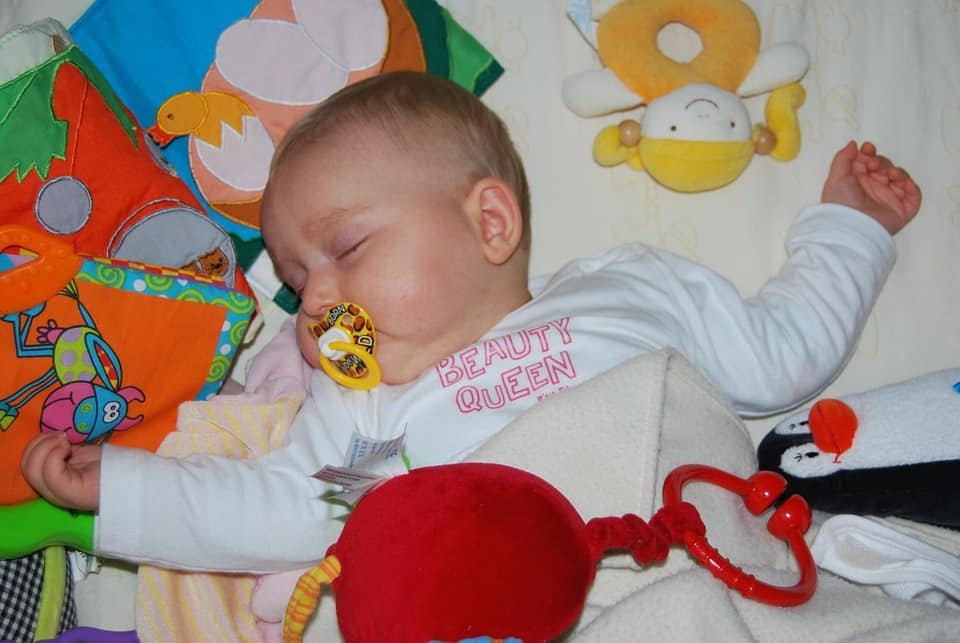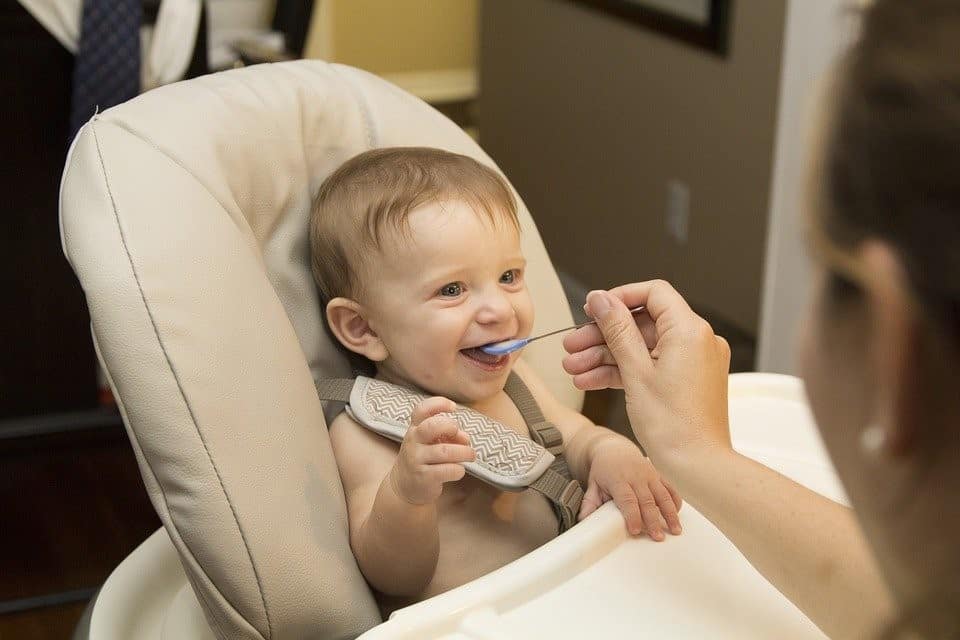As babies grow and develop, they pick up on a whole lot of seemingly random characteristics. They can end up doing a lot of things, and it can be difficult for parents to tell if certain behavior is perfectly normal, strange but acceptable, or legitimate cause for concern.
For instance, some babies chew with nothing in their mouths. Why do they do that?
A baby chewing with nothing in their mouth might be because of a few reasons. It could be instinctive behavior “built-in” at birth kicking in. It might be an attempt at self-soothing while under duress. Your baby may also be trying to explore new experiences.
While a baby chewing with nothing in their mouth is “normal”, you need to be wary of them swallowing air during this activity. Swallowed air could cause excess burping and even abdominal pain in your infant – be sure to burp them more often once you notice this!
It’s normal for parents to be worried when their babies act in inexplicable ways. This particular behavior can develop for a few reasons – it’s crucial we understand them before proceeding.
Reasons Why Your Baby is Chewing With Nothing in Mouth
1. It Could Be Instinctual
Your baby’s odd habit might be due to instincts being showcased at inopportune times. Babies are born with something called newborn reflexes, which have them responding to certain stimuli involuntarily. The main one at play, in this situation, is called the rooting reflex.
The rooting reflex occurs after an infant’s cheek gets touched. The baby then “roots around”, making suckling motions while approaching the point of contact for their next meal. It’s thanks to this instinct that your infant is able to feed themselves with little prompting.
Without a bottle or other food source, this behavior looks strange. Your infant would be looking around, mouth agape, chewing on nothing while swallowing air like fish in an aquarium.
This reflex can be triggered by almost anything – up to and including your baby stroking their own cheek accidentally!
2. It Could Be an Attempt at Self Soothing

Self-soothing is one of the many ways available for people to regulate their own discomfort and anxiety. This type of behavior starts young – in fact, infants learn to self-soothe (6+ months old) much earlier than they learn to say words aloud (11-12+ months old)!
Chewing is one of the more common ways babies go about doing this. It’s not irregular at all. In fact, this type of behavior even sticks around for some people well into adulthood.
Studies in the UK have surmised that the act of chewing itself causes spikes in dopamine in the brain. Even chewing on nothing is enough to stimulate that kind of catharsis for your infant.
3. It Could Be Replicating Behavior

Infants learn quickly from what they observe, and early on the bulk of their exposure will come from caretakers in their vicinity. Babies enjoy replicating behavior for the sake of it. They won’t understand the context behind the action – only that they want to try it for themselves.
For example, you might be feeding your baby only to start getting famished yourself. You’d then pull out an energy bar or some other snack while tending to your baby, eating it in front of them. They’d watch you do this and learn from what they see, even if they don’t understand it.
They won’t get that you’re hungry, or that you’re chewing to break down solid food. Your baby will try to replicate what they see – you chewing – because the action seemed interesting to them.
In some cases, this happens even outside of feeding time. Your baby could just remember the act of you chewing, then try replicating it with nothing in their mouths – even if they’re toothless!
4. It Could Be a Sign Of Hunger (Or Them Preparing For Solids)

Your baby chewing with nothing in their mouth could be a non-verbal cue that they’re hungry. How they’d chew at nothing may hint at different things, so pay close attention to their expression.
If their attempts to chew look tense, it may be indicative of them being hungry. Watch for discomfort or tightening facial features. Another sign could be your baby smacking their lips together intermittently. Be sure to get the hint because your baby could start bawling shortly.
On the other hand, your baby might look placid and relaxed while chewing on nothing. While it could be seen as a sign of self-soothing (as noted earlier), your infant may also be doing this in preparation for all the solid food they’ll be chewing later on in life.
It’s a normal developmental milestone, so don’t be alarmed by what you see.
While some babies are lucky enough to be born with teeth, others have to wait a few months for theirs. It’s not a pleasant process, as these teeth have to break straight through your infant’s gums.
Infants going through teething often seek out things to chew on, as the pressure alleviates the discomfort they’re experiencing. If a baby can’t get ahold of anything to help with teething, they could very well start chewing with an empty mouth.
If teething pains happen to be the problem, rubbing their gums with a cold spoon or damp gauze will help immensely. Keep in mind that you want whatever you’re using here chilled, not frozen.
5. It Could Be Them Exploring
Lastly, it could just be a matter of exploration. Infants learn about the world through observation, experience, and experimentation. They’ll want to engage with all sorts of stimuli around them. Babies often use their hands, feet, and mouths to do so.
Your baby could have just started chewing on nothing one day, liked the feeling, and kept doing it. They found a novel experience that’s both safe and fun for them to explore.
It’s understandable to be worried about your baby exhibiting odd behavior, but not every quirk is a looming threat to your child’s personal health or development. Let them investigate the world through their own initiative – even if it gets a little odd to watch at times!
6. The Danger of Swallowing Air

Your baby chewing with nothing in their mouths isn’t problematic behavior, but it does carry a few incidental risks A big issue a lot of parents deal with is their baby swallowing air during feeding time, which can lead to bloating, acid reflux, stomach pain, and cholic.
Excess gas is already a concern for babies without this particular habit. With it, your baby might be gulping down even more air, ramping up the risk of this significantly.
You’ll want to burp your baby a bit more often to offset this behavior. It’s a great precautionary measure that’ll save your infant some discomfort down the line.
Final Thoughts
A baby chewing with nothing in their mouths is perfectly normal – it can be explained by an abundance of reasons, and shouldn’t be cause for concern by itself. You just need to watch out for the risk of them swallowing air more due to this, as that might pose a health issue for your baby.